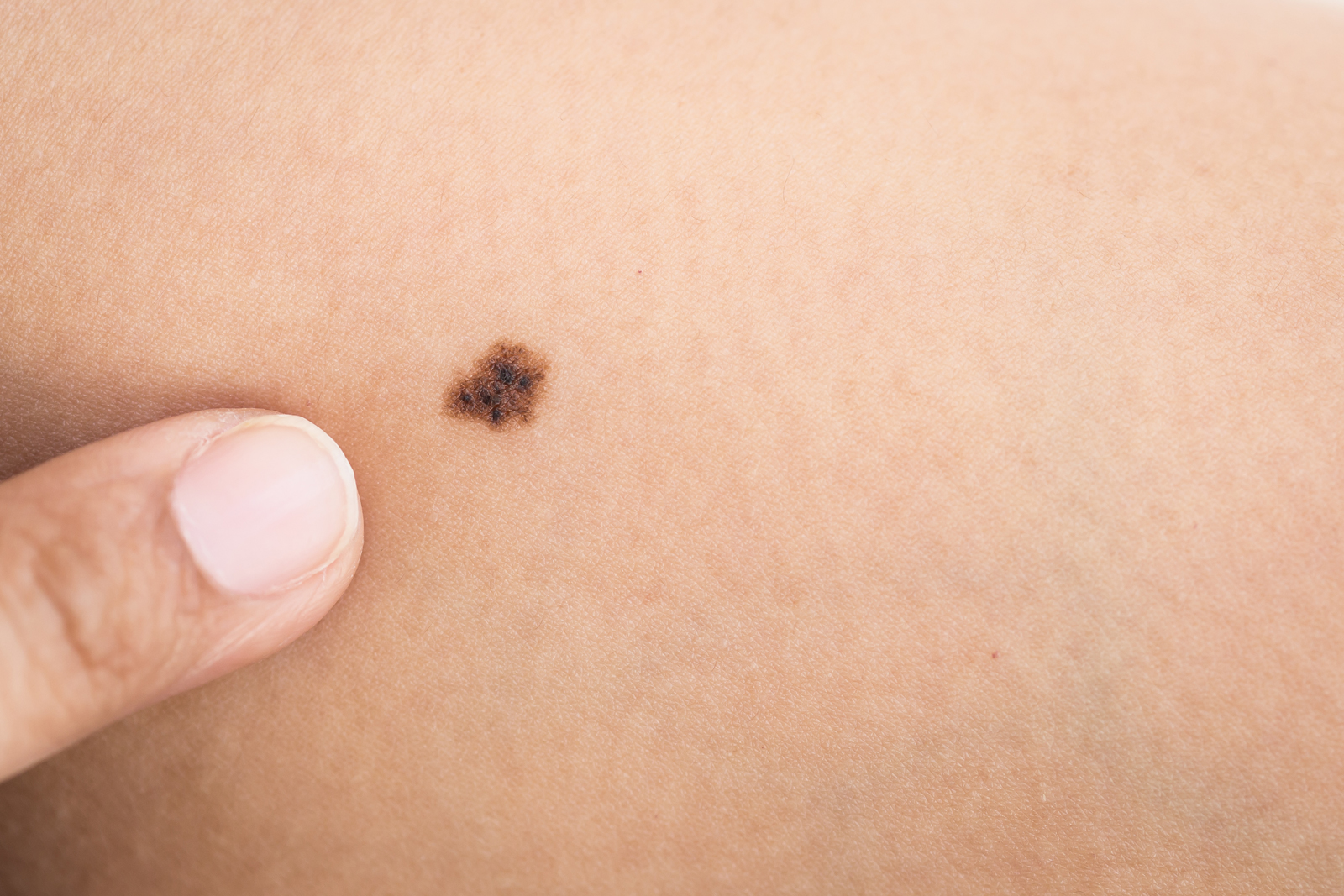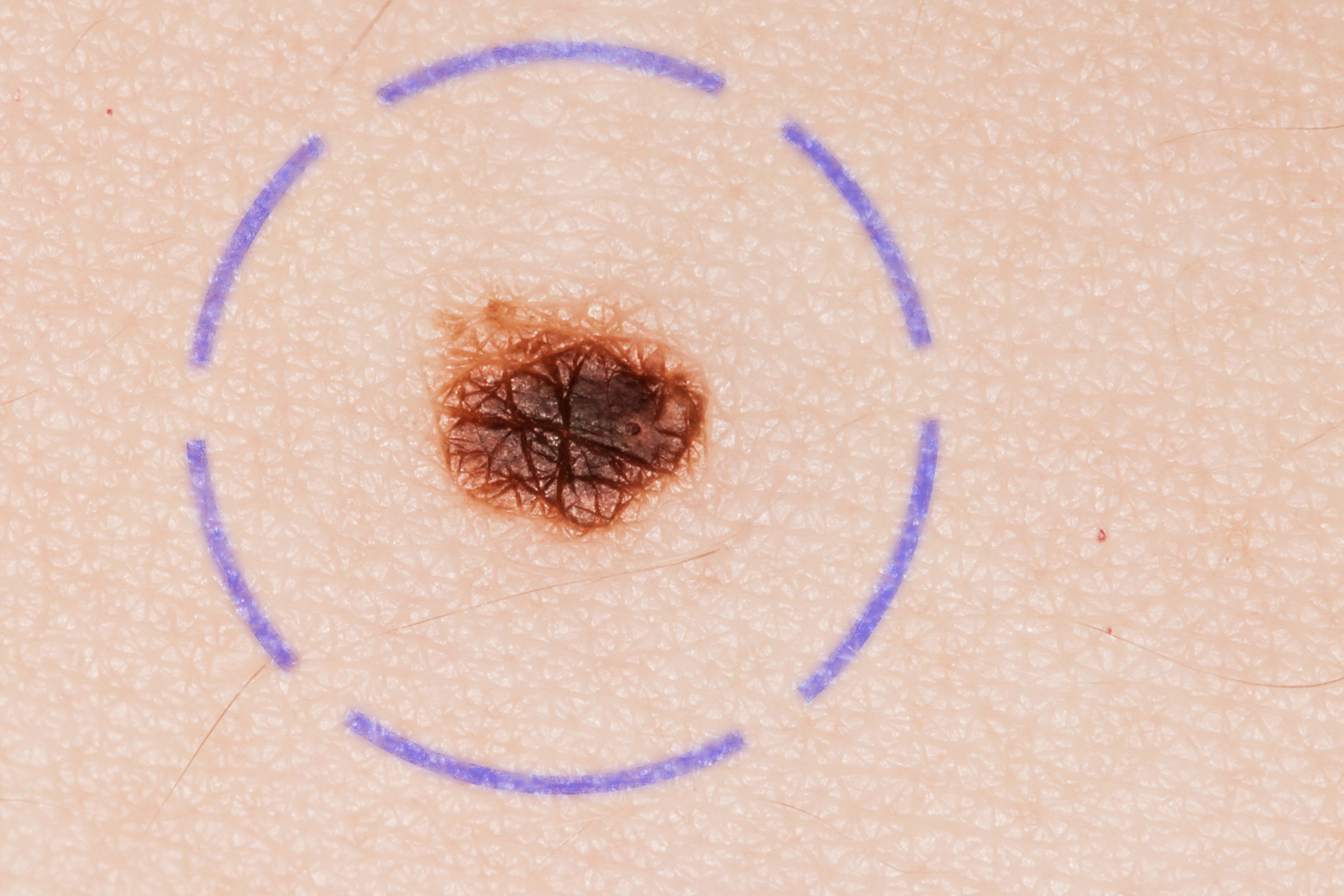Boston Skin Cancer Dermatologist
Jump To
 There are many types of skin cancer but the three most common types are basal cell carcinoma, squamous cell carcinoma and melanoma. Basal cell and squamous cell carcinomas are rarely life threatening and melanoma is the very dangerous type of skin cancer that can be life threatening. However, all three types need to be treated or they can continue to grow.
There are many types of skin cancer but the three most common types are basal cell carcinoma, squamous cell carcinoma and melanoma. Basal cell and squamous cell carcinomas are rarely life threatening and melanoma is the very dangerous type of skin cancer that can be life threatening. However, all three types need to be treated or they can continue to grow.
Exposure to the sun is a main cause of these types of skin cancer.
Of these three types, the most frequently encountered is basal cell carcinoma and affects 1 in 5 Americans in their lifetime.
 Basal cell skin cancer is most often on the face but it can occur anywhere on the body. It might start out looking like a pimple that never goes away and bleeds easily. Although basal cell carcinoma is almost never life threatening, it can continue to grow and bleed and should therefore be treated. Basal cell skin cancers can be treated in a number of different ways. They can be removed with Mohs surgery (a method to cut out skin cancers on the face), excised (a simple way to cut out the cancer), scraped away or treated with a cream. Your dermatologist can discuss with you the best way to treat your specific type of skin cancer.
Basal cell skin cancer is most often on the face but it can occur anywhere on the body. It might start out looking like a pimple that never goes away and bleeds easily. Although basal cell carcinoma is almost never life threatening, it can continue to grow and bleed and should therefore be treated. Basal cell skin cancers can be treated in a number of different ways. They can be removed with Mohs surgery (a method to cut out skin cancers on the face), excised (a simple way to cut out the cancer), scraped away or treated with a cream. Your dermatologist can discuss with you the best way to treat your specific type of skin cancer.
Squamous cell carcinoma is another type of skin cancer. This type most often starts out looking like a warty growth or a thickened area of skin. It may be tender a times. There are types of squamous cell skin cancers that grow quickly but most grow very slowly. They are treated with the same methods as basal cell skin cancers.
Melanoma can be life threatening and it is treatable if it is caught early on. People at higher risk for melanoma are those with fair skin, light colored hair, have a history of excessive sun exposure or indoor tanning, and those with family members who have had a melanoma. It is best to catch a melanoma early on before it grows and spreads internally. Warning signs that might  indicate that a skin lesion is a melanoma are the ABCDE signs. You should seek a physician’s opinion on a skin lesion if it has any one of the following ABCDE signs:
indicate that a skin lesion is a melanoma are the ABCDE signs. You should seek a physician’s opinion on a skin lesion if it has any one of the following ABCDE signs:
- A – Lesion is asymmetrical
- B – Borders of the lesion are irregular
- C – Different colors and shades within the lesion
- D – Diameter of the lesion is larger than 6mm
- E – Evolution, or changes, of a pre-existing lesion
Dermatologist Dr. Emmy Graber offers tips and info about melanoma and other skin cancers
Skin Cancer Prevention
Sunscreen
Wear SPF of 30 or higher daily. The vast majority of melanomas are caused by overexposure to the sun. In fact, one UK study found that about 86% of melanomas can be attributed to exposure to ultraviolet (UV) radiation from the sun.
Annual Examinations
Only 20-to-30 percent of melanomas are found in existing moles, while 70-to-80 percent arise on apparently normal skin.
Avoid Tanning Beds
More people develop skin cancer because of indoor tanning than develop lung cancer because of smoking.
To book an appointment for a checkup, contact our office today. Learn more at the American Academy of Dermatology: AAD Skin Cancer.
Dr. Ali Al-Haseni Discusses Skin Cancer for People of Color
Skin Cancer Dermatology FAQs
What is the most common skin cancer diagnosis?
It’s no secret that there are many different types of cancer that can develop within the body. Some are much more common or aggressive than others. The most common type of skin cancer is basal cell carcinoma (BCC). It’s estimated that around 3.6 million cases of BCC are diagnosed each year in the United States.
BCC, also known as superficial skin cancer, generally shows itself in the form of growth on the skin. In most cases, this can be easily removed with a biopsy, and a test will be performed to determine what stage the cancer is at. Regardless of the type of cancer, it’s always an issue that shouldn’t be taken lightly, even if it’s as common as BCC. There are different ways that BCC can be treated, some of which include radiation therapy, photodynamic therapy, and more.
Do you feel ill with skin cancer?
The tricky part about skin cancers is that they don’t come with any physical symptoms that let you know something is wrong. When catching skin cancers early, it entirely relies on due diligence to spot something abnormal in the body.
This is why it’s so important to get regular check-ups with your dermatologist. However, if the cancer gets out of control before you’re diagnosed, you may come across some symptoms, but in most cases, this can be avoided by paying attention to your body.
You could potentially go through multiple stages of skin cancer without feeling any different. Visually, you’d be able to see a spot grow to an abnormal size, but this can be caught before it ever becomes an issue. When any form of skin cancer is caught in its early stages, your dermatologist can plan to have it removed entirely. Depending on the size of the skin cancer, the biopsy may leave behind some scarring, but you’ll be healthier for it in the long run.
How long can you have skin cancer without knowing?
Skin cancers are a slow-growing process. So slow that you may not see the changes happening on your body for years. Since many people don’t have the eye to spot skin cancer in its earlier stages, you want to visit your dermatologist as they’ll be able to spot it right away.
The fact that skin cancers can grow without you noticing for such a long take can be detrimental to your health, as it could go through multiple stages before ever being noticed. In the same vein, sometimes skin cancers grow on areas of the body that you don’t see very often.
For example, specific parts of your back, on your scalp, and even the buttocks area. Just because you feel fine doesn’t mean your skin doesn’t need a check-up every once in a while. Although skin cancers can be stopped in their tracks during their early stages, it’s still something that shouldn’t be taken lightly by any means.
Can a blood test detect skin cancer?
When visiting your dermatologist, there’s a good chance they’ll be able to spot any skin cancer by just taking a look at your body. This isn’t the only way skin cancer can be found, as it’ll also show up in certain blood tests.
Blood tests generally focus on detecting melanoma skin cancer. If detected, this could be a sign that the melanoma has been developing, as the blood test reveals that it has been found in other tissues and organs.
If needed, you can still be proactive with skin cancer treatment, but as with any cancer, the earlier, the better. Although some cancers are known to be more dangerous than others, all types of cancer have the ability to have an adverse effect on your health. Skin cancer can only be caught in its early stages if you’re diligent about seeing your dermatologist.
Is skin cancer treated easily?
You’ll be happy to know that skin cancer is considered to be relatively easy to treat. Skin cancer treatments are effective and include a variety of methods, such as surgery or radiation. The type of skin cancer treatment you receive will depend on the type of skin cancer and its current stage. A skin cancer dermatologist will know exactly which path to whaling you need to take based on the type of skin cancer you’re dealing with.
As with many cancers, you want to catch them as early as possible. In the early stages, you may be able to get rid of it through a simple biopsy, but if the cancer has spread to different areas of the body, you may need a more invasive treatment. Some types of skin cancer aren’t known to spread, such as basal cell carcinoma, but it should be removed if it starts to grow.
How quickly does skin cancer spread?
It varies depending on the type of skin cancer. Whereas BCC grows at a very slow pace, melanoma can potentially grow at a rapid rate. A skin cancer dermatologist will know which course of action you need to take based on the type and current status of a skin cancer. With types that are more aggressive, this requires more proactive action on your part.
This can only be accomplished by seeing your dermatologist for check-ups around once or twice per year. Skin cancers can be easy to catch early on, as long as you’re paying attention to your body. Noticing a growth that’s increasing in size isn’t too difficult, but it can be hard to catch depending on its location and growth rate.
How serious is skin cancer?
In many cases, potential skin cancers will turn out to be benign. If it isn’t caught early on, there’s the chance that it’s a malignant melanoma or another type of aggressive growth on the skin. When you’re dealing with a skin cancer that’s started to spread to other areas of the body, your dermatologist will develop a treatment plan to try and get ahead of the cancer’s development.
The seriousness of a skin cancer is really dependent on when you catch it. Finding a potential skin cancer in its early stages can be harmless, but this can change if it’s left to grow for years. A skin cancer dermatologist will have no trouble spotting this for you before it ever becomes an issue, but it’s up to you to take action and ensure your skin and well-being stay protected.









